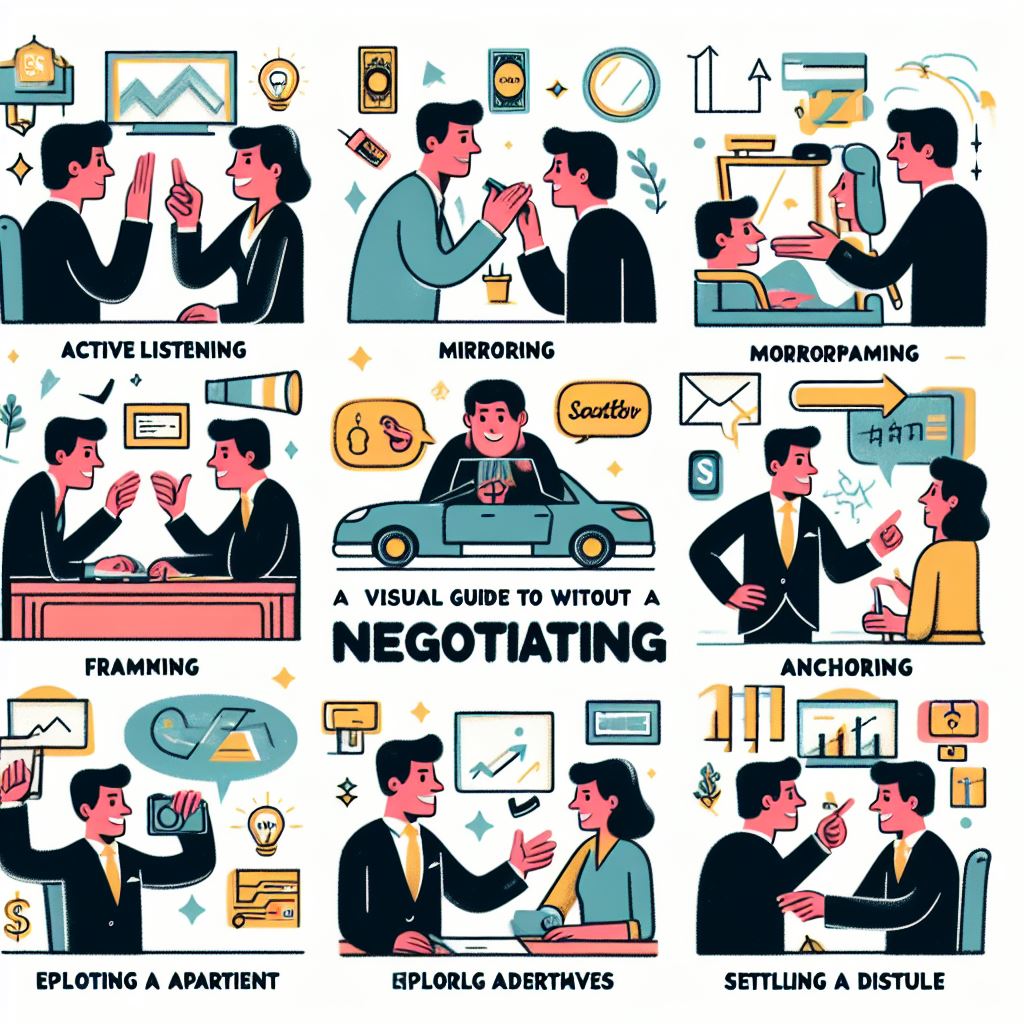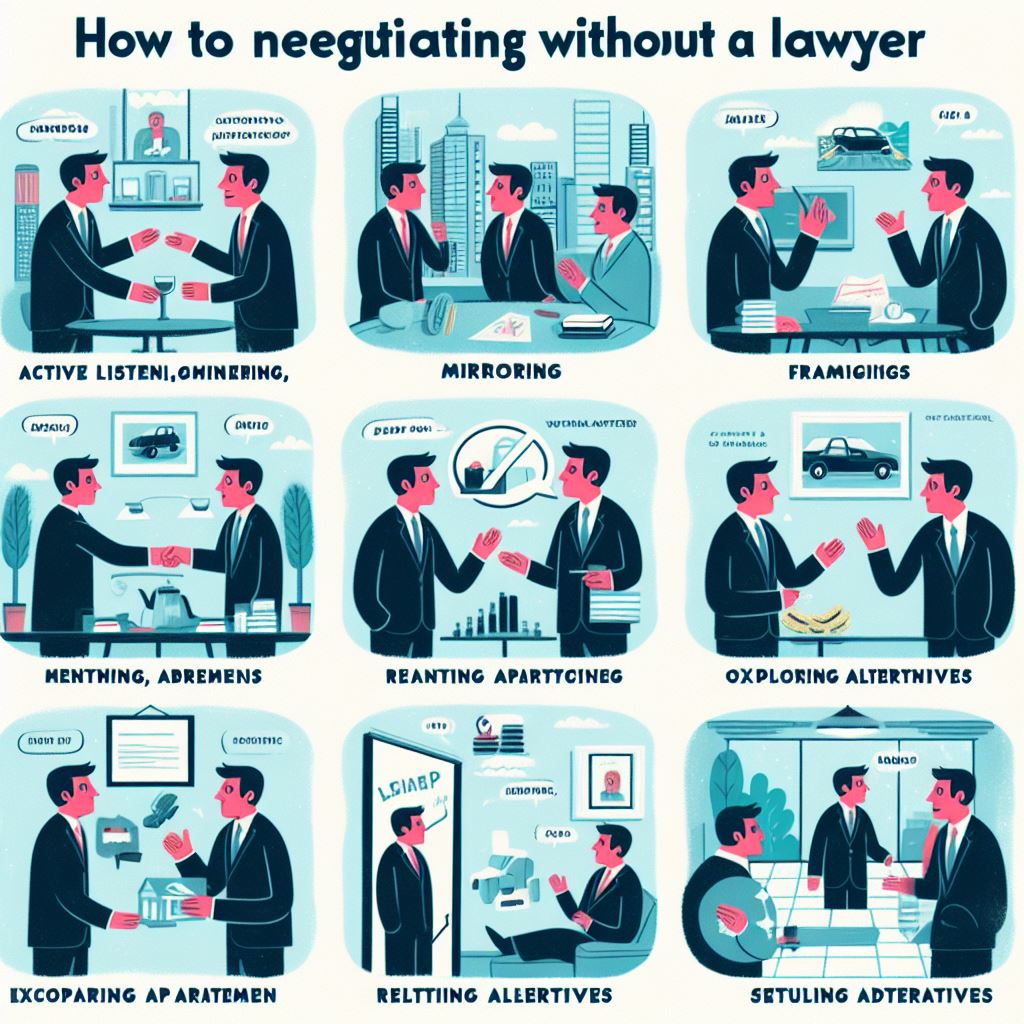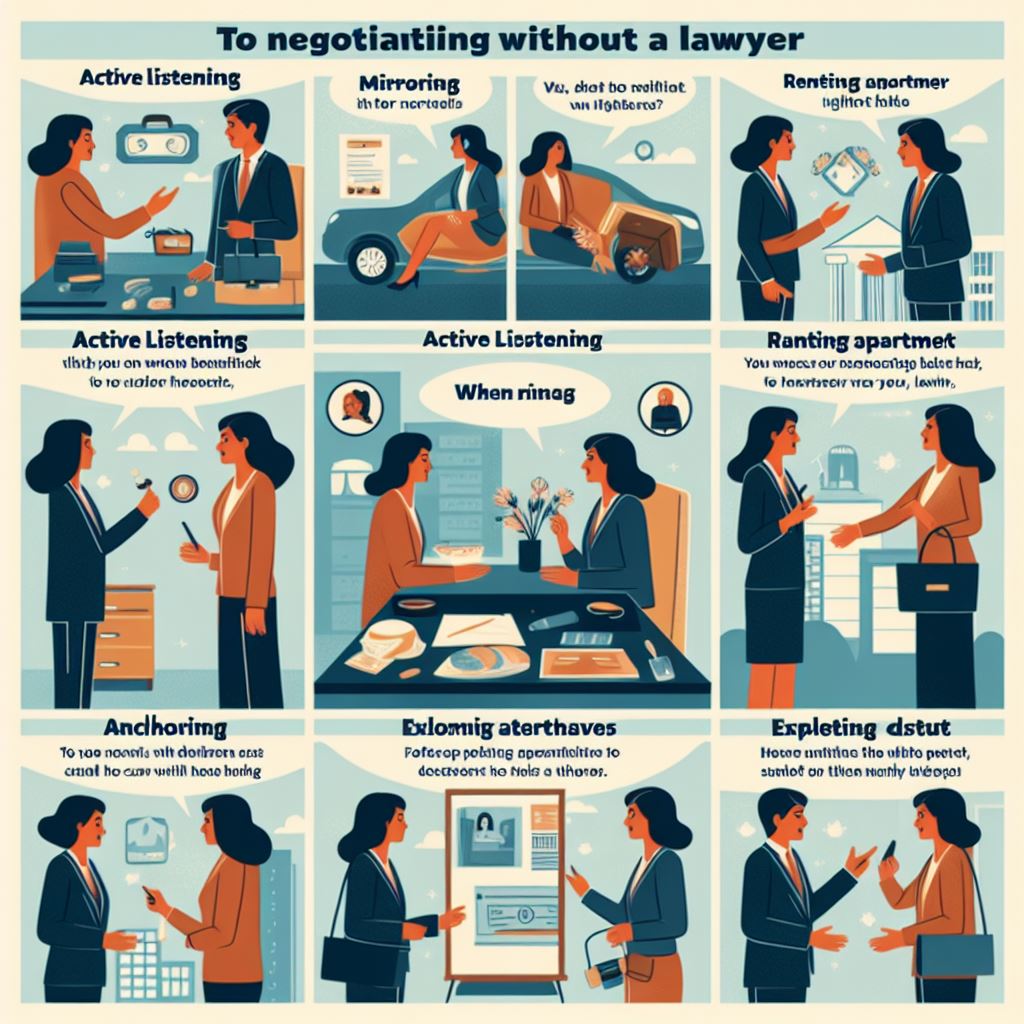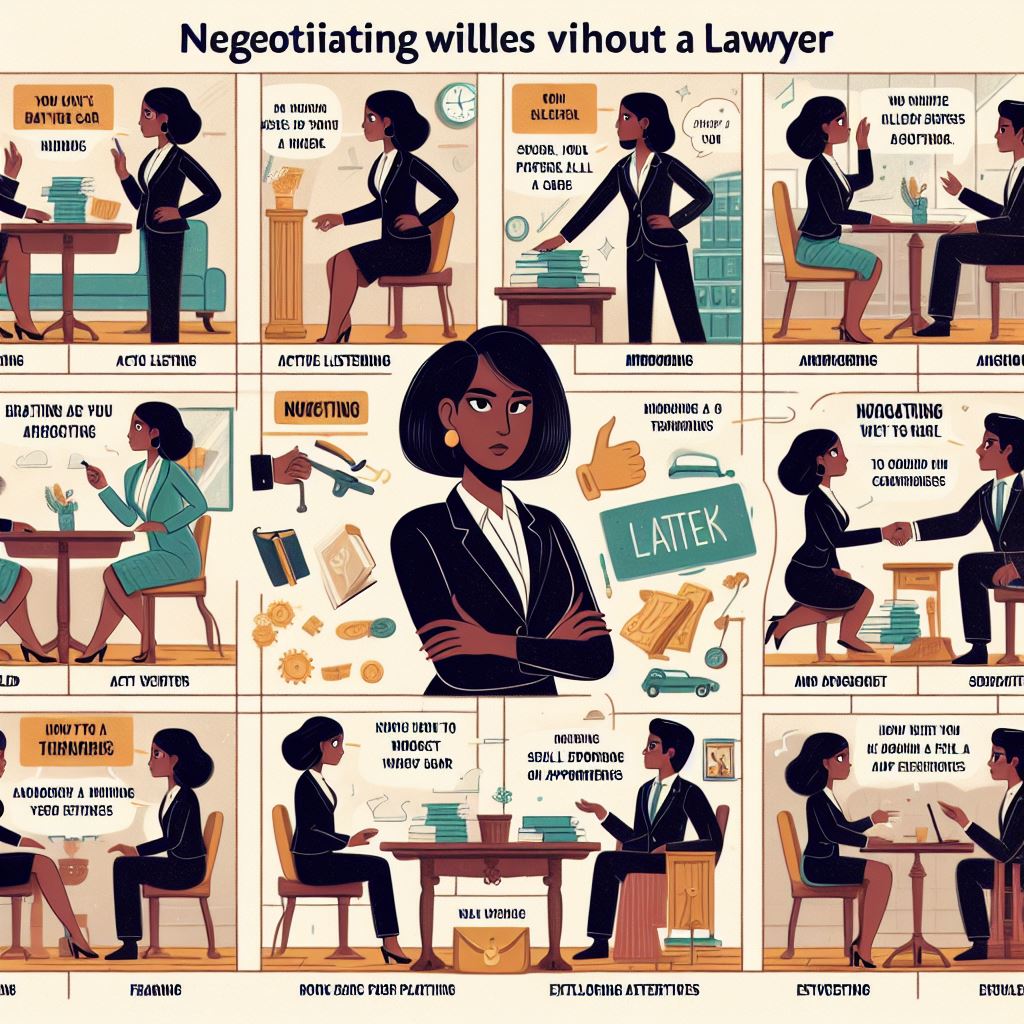Mastering the Art of Negotiation Without a Lawyer

Negotiating without a lawyer can be a strategic approach to resolving disputes. Whether you’re dealing with a personal injury claim or other conflicts, here are some valuable insights:
- Understand the Total Value: Before entering negotiations, assess the complete value of your claim. Consider all medical expenses, lost wages, and any other costs related to your injury.
- Settling Out of Court: Settling disputes out of court can be advantageous. It allows you to keep the matter private and potentially create a value-adding deal. Legal battles come with transaction costs, including legal fees and time investment. Sometimes, involving lawyers can hinder cooperation and creative problem-solving.
- Craft an Effective Demand Letter: If you’re handling a personal injury claim, learn how to write a compelling demand letter. Clearly state your position, the facts of the case, and the compensation you seek. A well-crafted letter can set the tone for successful negotiations.
Remember, negotiation is about finding common ground and seeking mutually beneficial solutions. Even without a lawyer, thoughtful preparation and understanding your rights can lead to positive outcomes.
Negotiation is a skill that transcends boundaries and professions. Whether you’re closing a business deal, settling a dispute, or navigating a personal matter, knowing how to negotiate effectively can be immensely beneficial.
While lawyers are often involved in complex negotiations, it’s entirely possible to negotiate successfully without legal representation. In this guide, we’ll explore practical strategies and techniques to help you negotiate with confidence and achieve favourable outcomes, all without the need for a lawyer.
Table of Contents:
Understanding the Basics of Negotiation

Before diving into the intricacies of negotiation without legal representation, let’s establish a foundational understanding of the negotiation process:
Define Your Objectives
Clarifying your objectives is the first step in any negotiation. Determine what you hope to achieve through the negotiation process and set clear, realistic goals accordingly.
Research and Preparation
Thorough research and preparation are essential prerequisites for effective negotiation. Familiarize yourself with the relevant facts, figures, and legal principles to bolster your negotiating position.
- How to Train a Dog
- How to Potty Train a Dog
- Scientific reason behind dog chasing: Why do dogs chase in the toilet?
- How Truck Accident Lawyers Can Help.
- A Guide to Hiring an Auto Accident Lawyer
Strategies for Negotiating Without a Lawyer
Negotiating without legal representation requires a strategic approach and a keen understanding of human psychology. Here are some proven strategies to help you negotiate confidently:
Build Rapport and Establish Trust
Building rapport and establishing trust with the other party can significantly enhance the negotiation process. Show genuine interest, empathy, and respect to foster a positive rapport and lay the foundation for productive discussions.
Focus on Interests, Not Positions
Rather than fixating on rigid positions, focus on underlying interests and objectives shared by both parties. By uncovering mutual interests and exploring creative solutions, you can expand the scope of potential agreements and foster a win-win outcome.
Practice Active Listening
Active listening is a cornerstone of effective negotiation. Pay close attention to the other party’s concerns, preferences, and communication cues, and respond thoughtfully to demonstrate empathy and understanding.
Maintain Flexibility and Adaptability
Negotiation is inherently dynamic, requiring flexibility and adaptability to navigate unexpected challenges and opportunities. Remain open-minded and willing to explore alternative solutions that may better serve both parties’ interests.
Overcoming Common Challenges

Negotiating without a lawyer may present certain challenges, but with the right mindset and approach, these obstacles can be overcome:
- How to Train a Dog
- How to Potty Train a Dog
- Scientific reason behind dog chasing: Why do dogs chase in the toilet?
- How Truck Accident Lawyers Can Help.
- A Guide to Hiring an Auto Accident Lawyer
Handling Legal Complexity
While legal expertise can be valuable in complex negotiations, you can mitigate legal risks by seeking guidance from reputable sources, such as legal clinics, online resources, or industry experts.
Managing Emotional Dynamics
Negotiations often evoke strong emotions, which can complicate the process. Practice emotional intelligence and self-regulation techniques to maintain composure and focus during challenging negotiations.
Conclusion
Negotiating without a lawyer is a skill that anyone can cultivate with practice and perseverance. By mastering the art of negotiation, you can confidently navigate a wide range of situations and achieve mutually beneficial outcomes without the need for legal representation.
Question: What are the benefits of negotiating without a lawyer?
Negotiating without a lawyer can save money on legal fees and allow for more flexibility and control over the negotiation process. It also promotes better communication and a more amicable resolution of disputes.
Question: How can I prepare effectively for a negotiation without a lawyer?
Before a negotiation, research and gather information about the subject matter, understand your objectives and limits, anticipate potential arguments, and practice active listening and effective communication skills.
Can I still protect my interests without a lawyer present?
Absolutely! You can protect your interests by thoroughly understanding your rights and obligations, exploring alternative solutions, creating clear and detailed written agreements, and seeking advice from professionals if needed.
How do I handle a difficult or unreasonable negotiator on my own?
Stay calm and focused, maintain a professional demeanour, listen attentively to their concerns, respond with logic and rationale, and explore creative solutions that address both parties’ interests to overcome any obstacles.
What if I can’t reach an agreement without legal representation?
In cases where negotiations fail, consider involving a mediator, or arbitrator, or seeking legal advice. These professionals can help facilitate productive discussions, provide guidance, or represent you if litigation becomes necessary.

